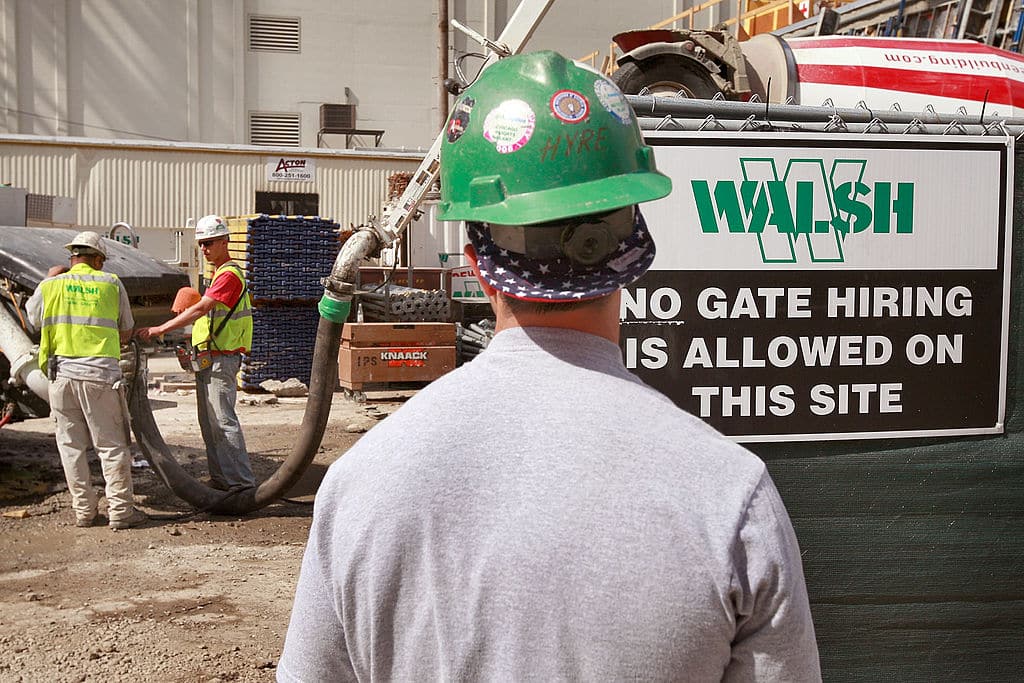In 1955, Pope Pius XII instituted the Feast of St Joseph the Worker as an intentional answer to the Communist inflected “International Workers’ Day”. His purpose was to reclaim the nature and purpose of work, rooted in a proper understanding of God, man and society. Pius affirmed the dignity of work without the pernicious baggage of atheistic materialism. While the 1 May feast celebrates St Joseph, it is also an opportunity to reflect upon work as a participation in the creative nature of God. God is the first “ working man”, and His work gives us a foundation for understanding the role of labour in our own lives.
As Genesis 2:2 explains, creative work is “natural” to God. And because the human person is made in the image and likeness of God, we can deduce that one aspect of that image and likeness is that man is also ordered in his essential nature to work. We learn what the image of God is by observing what God does. God works, and we are made in His image; therefore, we are made for work as a natural aspect of our being. And because God Himself is the first worker, we can see the inherent dignity in work. This dignity is expressed in the very ability of man to work, and thus to contribute to his own personal development.
But many people who read this will say to themselves, “My work is not very dignified.” It is true that for many people work is a tedious, arduous grind rather than a dignified activity. This does not refute the natural, inherent dignity of work, however. Rather, the drudgery of work is yet another result of the fall of the human person, which is so pervasive that it involves all aspects of our lives. The essence of the fall is the rejection of the natural end of the human person as ordered toward God. Indeed it is the rejection of God as man’s final end. But if this most fundamental relationship is now disordered, it “naturally” follows that all other aspects of human life are also disordered. This includes our relationship to work or even work itself.
Another name for this disorder is “alienation”. When we alienate ourselves from God, we are disordered from our true end and purpose. Thus, we are alienated and disordered from every other good that is natural to the human person, including work. In this context, the word “alienation” is particularly appropriate, as it not only describes the state of man in The Fall, but also one of the fundamental challenges to a theology of work in the modern context.
A theology of work must begin with the fundamental problem of alienation and how it can be resolved. Whether from his employer, his fellow employees, or the labour of his hand or intellect, alienation is at the heart of the Marxist criticism of the industrialised economy. And, indeed, these are serious problems to which Marx was correct to call our attention. Unfortunately, he was wrong about the causes and remedies for this alienation.
The specific expression of our alienation to work after The Fall is illustrated in Genesis 3, when God announces the effect of the new state of disorder. “Cursed be the ground because of you,” He declares. “In toil shall you eat its yield all the days of your life. Thorns and thistles shall it bring forth to you...By the sweat of your face shall you get bread to eat” (Genesis 3:17-19a). Similarly, after Cain slays Abel in Genesis 4, God tells Cain: “If you till the soil, it shall no longer give you its produce” (Genesis 4:12). Thus Cain was alienated from his proper and natural end of cultivating the earth and forced to wander as an alien in the land.
Alienation from work is a common experience of many people (even for those who have not killed a sibling). But, like all aspects of human life, God has redeemed work in the life, death and resurrection of Christ. Christ came to reorient us toward the Father and, thus, to reorder and restore our lives to their proper ends and purposes, both natural in this life and supernatural in the life to come.
One aspect of the former is that God has given us a renewed understanding of the nature and purpose of work, as well as the theological resources to articulate a revival of the dignity of all work. In the context of our redemption in Christ, even work that does not seem to be very dignified can be ordered toward its proper ends and purposes, thus retrieving and reviving its dignity.
This brings us back to the Feast of St Joseph the Worker. In St Joseph, we have a model of quiet, dignified work that serves the higher purposes of God’s redemptive activity in the world. God commissioned Joseph to work; Joseph’s work contributes to God’s own.
<em>Photo: Antony Vargas, a construction worker from Puerto Rico, poses for a photo in Fort Myers Beach, Florida, on November 2, 2022, after Hurricane Ian devastated the area on September 28, 2022 (Photo by Eva Marie UZCATEGUI / AFP) </em>
<em>This is an edited extract from Dr Craycraft’s </em>Citizens Yet Strangers: Living Authentically Catholic in a Divided America<em> ( OSV, 2024)</em>.
<strong><strong>This article appears in the May 2025 edition of the <em>Catholic Herald</em>. To subscribe to our thought-provoking magazine and have independent, high-calibre and counter-cultural Catholic journalism delivered to your door anywhere in the world click <a href="https://thecatholicherald.com/subscribe/"><mark style="background-color:rgba(0, 0, 0, 0)" class="has-inline-color has-vivid-cyan-blue-color">HERE</mark></a></strong></strong>.



